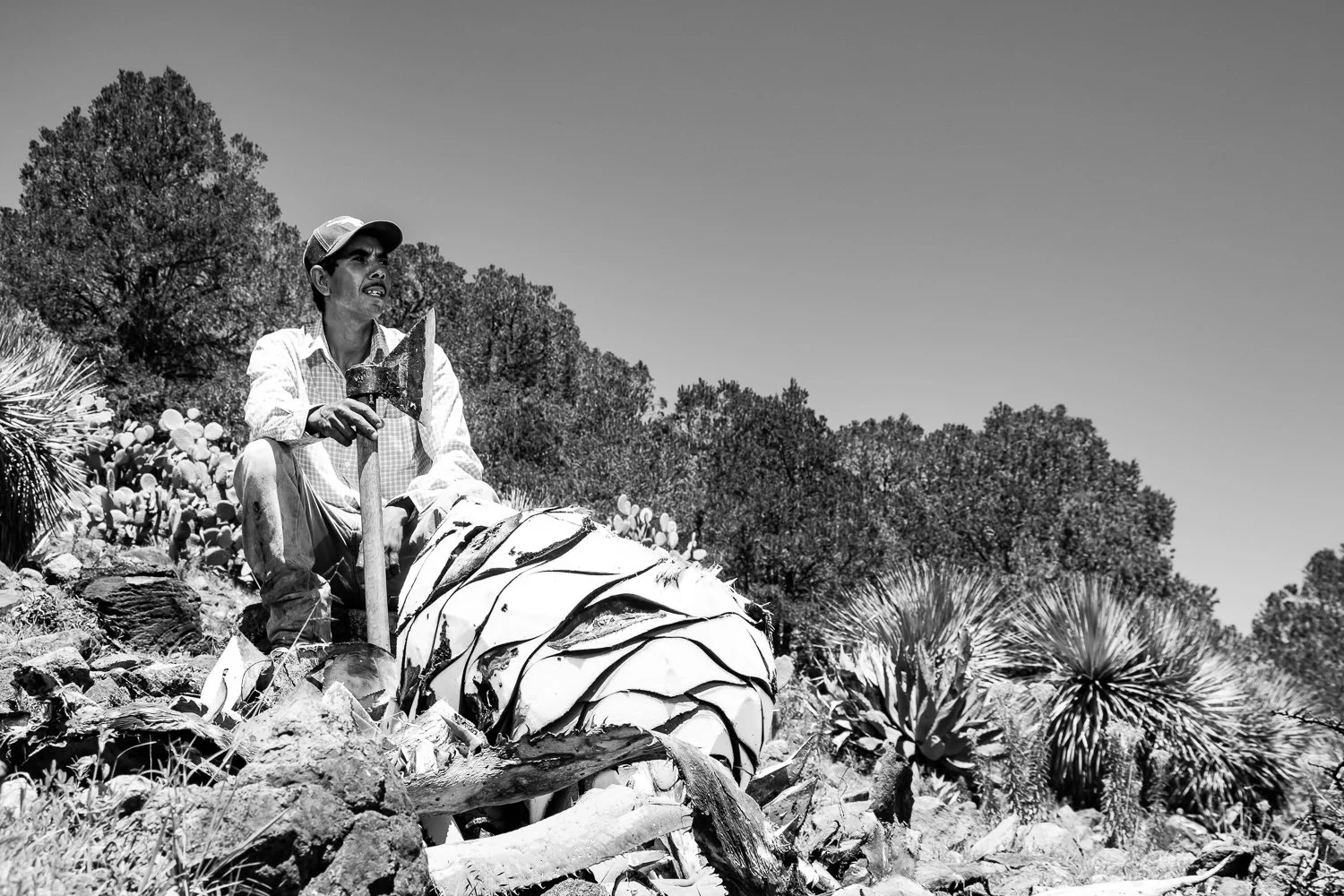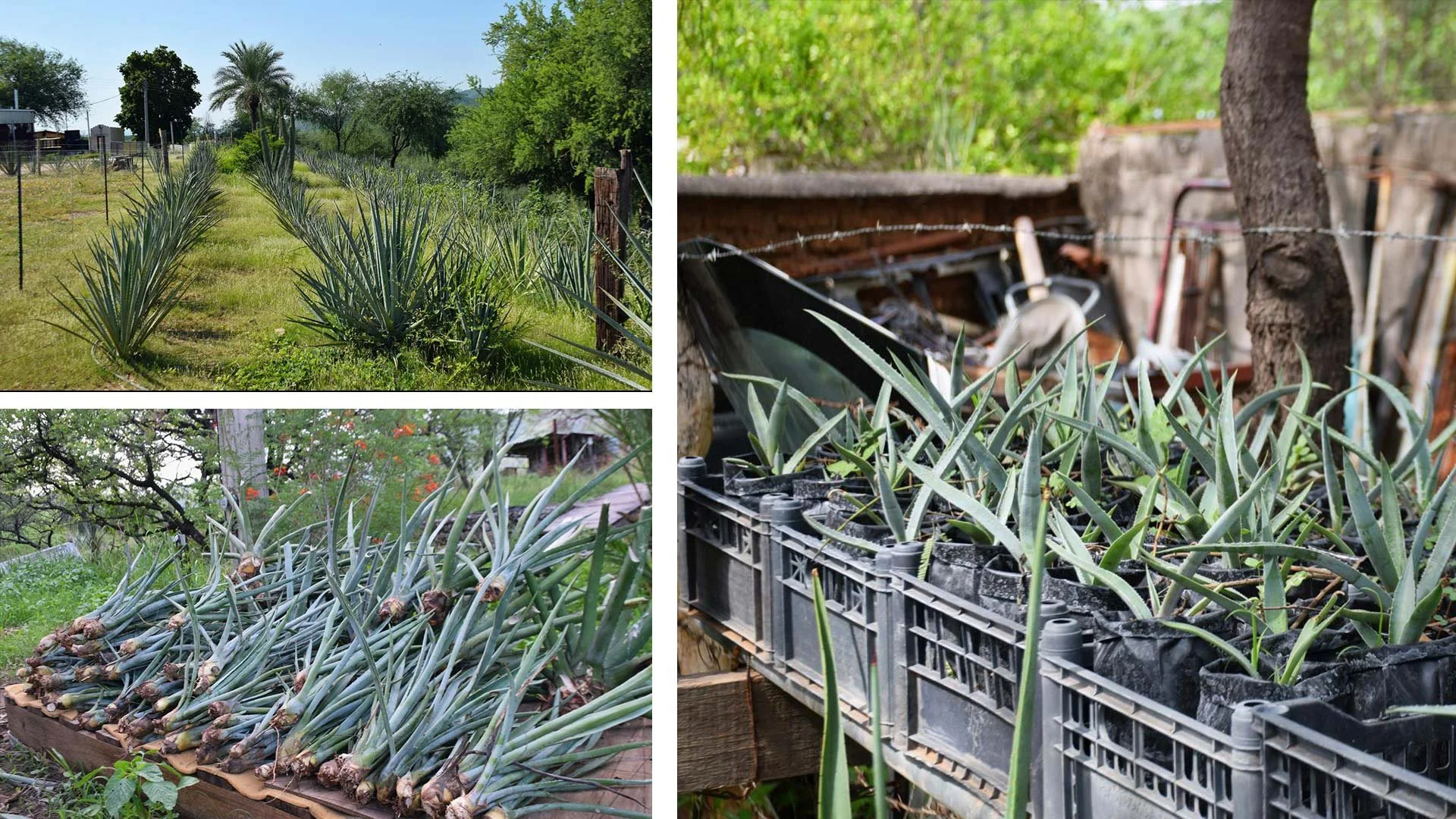The History of Bacanora
The Spirit of Sonora
Hidden among the rugged mountains and golden desert of northern Mexico lies Sonora, a land as wild and untamed as the spirit that bears its name — Bacanora.
For over three centuries, families here have harvested the resilient Agave Pacifica (Agave angustifolia Haw) — a plant that thrives in the harsh Sonoran sun — to craft a spirit unlike any other. What began as a humble tradition in remote ranches and villages became both a symbol of rebellion and a source of pride for an entire region.
The Path to Legitimacy
In the 1990s, change began to stir. Younger generations of Sonorans, recognizing the cultural and economic importance of Bacanora, began to fight for its recognition. Their efforts were rewarded in 1992, when the ban was finally lifted — ending decades of secrecy and persecution.
By 2000, Bacanora received its Denominación de Origen (DO) — the same protected status enjoyed by Tequila and Mezcal — officially recognizing it as a unique regional spirit that can only be made in Sonora, from 100% Agave Pacifica.
Today, the Denomination of Origin covers 35 municipalities in the state of Sonora, ensuring that every bottle of true Bacanora carries with it the heritage, geography, and soul of this desert region.
The Future of Bacanora
Once outlawed, now celebrated — Bacanora is finally stepping into the spotlight it has long deserved. Its presence is growing beyond Mexico’s borders, capturing the attention of bartenders, collectors, and curious drinkers in the U.S. and beyond.
Its story resonates with a new generation that values authenticity, craftsmanship, and cultural heritage. Bacanora stands proudly beside tequila and mezcal, yet remains distinctly Sonoran — bolder, smoother, and grounded in the spirit of resilience.
As Bacanora finds new fans across the world, it carries forward a simple truth:
The spirit of Sonora cannot be tamed.
The Forbidden Spirit
In the early 1900s, Bacanora’s story took a dramatic turn.
During the era of prohibition under Governor Plutarco Elías Calles (around 1915–1992), the production and consumption of Bacanora was made illegal throughout Sonora. The spirit was considered too strong, too rustic, too tied to the rebellious culture of the mountains.
But Sonorans were not easily silenced.
In secret, families continued to roast agave hearts in underground pits, distill in handmade copper or clay stills, and hide their bottles in caves and barns. Making Bacanora became an act of quiet defiance — a whisper of freedom passed from generation to generation. For nearly 77 years, Bacanora lived underground, preserved only through the pride and persistence of local producers known as vinateros.
Tradition Meets Innovation
Modern producers have brought Bacanora into a new era — blending traditional roasting and distillation with refined, sustainable methods. Many families who once distilled in secret now operate proudly and legally, crafting small-batch expressions that capture the same smoky, earthy, and subtly sweet flavor that defined Bacanora for generations.
Each sip tells a story — of volcanic soil, desert winds, and the fierce independence of Sonoran people.
From classic blancos that express the raw beauty of the agave, to aged expressions resting in oak, and innovative creations like cream liqueurs and ready-to-drink seltzers — Bacanora continues to evolve without losing sight of its roots.





